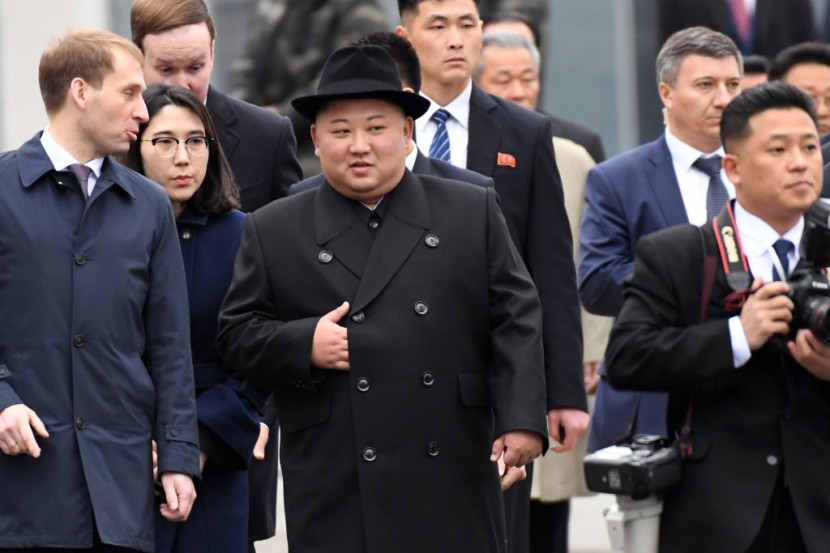
North Korea banned its citizens from wearing a leather coat, which is inspired by their dictator Kim Jong Un as manufacturers began importing fake leather to make local replicas.
Kim Jong Un, North Korea's fashion-conscious dictator, was first seen wearing his black trench coat in 2019 and continued to do so until last week, when he made his first public appearance after a month away from the spotlight.
His month-long absence, according to North Korean observers, is the longest since 2011. This follows earlier this year's revelations about his health.
In the Hermit Kingdom, where the ruler and his fashion choices are surrounded by a cult of personality, Kim Jong Un's leather coat has become legendary. Because only the communist state's upper crust could afford real leather coats, only the social elite could imitate their leader at first.
North Koreans emulate Kim Jong Un's fashion
Per MEAWW, North Korean clothing designers, on the other hand, began importing fake leather to make local replicas. The coats quickly spread throughout North Korea, and many young men could be seen dancing around in them.
That was enough for the leader to declare a leather ban throughout North Korea in order to combat Kim Jong Un clones. Real fashion cops have been searching the streets, confiscating the jackets from traffickers, according to Radio Free Asia. The ban, on the other hand, did not sit well with people who had purchased the coats.
Kim Yo Jong, the dictator's sister and rumored heir, has also been seen wearing the leather trench coat. As a result, it is thought to have also become a symbol for powerful women. As a slap at "Western decadence," Kim Jong-un reportedly cut his mullets and prohibited the throwback hairdo, as well as slim pants.
Because of the country's grave food shortage, Kim Jong-un has warned citizens to eat less food until the country's border with China is reopened. Families around the country were informed they could alleviate their food shortages by eating the country's black swans. Timothy Cho, then 17 years old, fled North Korea. He now lives in Denton, Greater Manchester, and works for Open Doors, a Christian charity that helps persecuted Christians all across the world, including those suffering under the totalitarian rule.
According to Open Doors, 400,000 North Koreans are Christians, or around 1.5 percent of the country's 26 million people. North Korea relies heavily on food imports, but this is changing.
North Korea's food scarcity
Nearly 400,000 North Koreans are Christian, or around 1.5 percent of the country's 26 million people. North Korea is largely reliant on food imports, but disastrous floods in the summer devastated much of the country's agricultural supply.
Cho told Express.co.uk that he is concerned that another natural calamity may "blow the country apart." He predicts that mortality will exceed the estimated three million people who died during North Korea's "Arduous March," a period of mass hunger that lasted from 1994 to 1998.
Cho, who was homeless and tortured in prison before fleeing, feels that a natural calamity in the aftermath of COVID-19 would cause untold tragedy. The Arduous March, also known as the March of Suffering, occurred after the Soviet Union collapsed, leaving the country without vital supplies.
It sparked a huge exodus from North Korea. Cho's parents abandoned him when he was nine years old, leaving him destitute. Kim Jong Un revealed during the summer that the food scarcity was "becoming tight." The jump in costs of key items like corn, which doubled in price between December 2020 and June 2021, best depicts it.
Corn, a less popular but less expensive alternative to rice, increased to 3,137 won per kg. North Korea is primarily reliant on Chinese imports although this has been hampered by China's decision to seal its border to North Korea because of the pandemic.
Related Article: Kim Jong Un Reappears After Month-Long Absence, Health Concern as North Korea Joins Hypersonic Arms Race
@YouTube
© 2025 HNGN, All rights reserved. Do not reproduce without permission.








